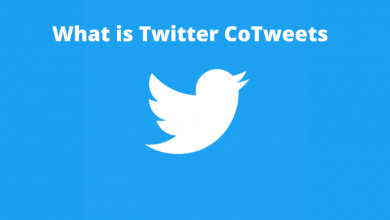A few decades back, people would probably look puzzled at the mention of mental health and emotional support. But in the digital age, there is no lack of awareness about mental health, and it is no longer considered a taboo. But what use is all this awareness if none of us come forward and seek help?
The hesitation among people can be accepted but cannot be tolerated because of the lack of help and access to support groups. As PIA revealed, an average of 20% of the American population struggles with mental health-related issues, and yet only 60% of them have access to help.
Without proper insurance and a big bank balance, people cannot even think about booking a therapist. This is where the multi-billion-dollar market of mental health apps came into play. They have grown quite well over the past few years with Covid and isolation. Some might think that’s a good thing at a glance. But what happens in the background is what matters. You will be shocked to know how much data piracy and information theft happens in the name of emotional support. We are here to help guide you through your journey of healing and seeking emotional support without losing your privacy.
Contents
Things You Need to Know About Mental Health Apps
The Health Insurance Portability and Accountability Act of 1996, also popularly known as HIPAA, was created to protect the patient’s identity and information. This is the foundation for doctor-patient confidentiality. While the law says it is unacceptable to share patient records and information without the individual’s consent, how many online mental health apps do you think follow this rule?
The sea of mental health apps and websites does the complete opposite of this. Mental health apps are least worried about protecting your data, and they compromise your privacy in all possible ways. They violate HIPAA because they are not part of it. You cannot even make them take accountability for this.
Beware of the therapy apps asking you to fill out several questionnaires and page after page of personal details. Read the privacy policy of the app before you fill out these forms, especially when they ask you about your home address, sexual orientation, gender specifications, and other medical-related questions. There is a whole group of humans on the other side of these apps, siphoning your data and metadata.
While consulting an actual doctor, we all ask a thousand questions. We enquire about their credentials and talk with someone you know who is already acquainted with the doctor. You do your research on their success rate. You go for a second opinion with another doctor. All this happens when you consult an actual doctor with an internationally acknowledged degree.
But when it comes to online therapy and mental health apps, we are least bothered about it. We are known to trust the algorithm more than we trust humans. That is because we often forget the app, too, is controlled by a living, breathing human being.
Several news articles and researchers continue to openly spread awareness about this malpractice. But there nothing much has changed in the past years. NBC News even published an article on how easy and cheap it is to buy personal and mental health data from online data brokers.
Mental Health Apps: Data Collection and Risks
The research on Mental Health apps has exposed several popular mental health apps and their ties with data extortion. Have you ever questioned why a therapy app tracks your IP address or needs your social security number?
Mental health Apps such as BetterHelp, Cerebral, Better Stop Suicide, Talkspace, and Youper come under this category. They have a standing privacy policy, but what use is that if the policies are vague and filled with tricky language? Better Stop Suicide’s policy mentions sharing data only with trusted partners. Who are these partners, and who decides they are honestly trustworthy?
These are questions you should be asking yourself before providing your sensitive and confidential personal and medical data. A privacy policy should be straightforward and clear. There should be no space for speculation.

They store your data and sell them to third-party apps and companies. Whoever pays more gets to have the data. This puts you and your personal life at great risk. They can manipulate you by targeting your weak points and vulnerabilities. They now know you struggle with mental health issues and will make you a target audience for selling products based on that. You open a social platform, and all you see is fancy advertisements tailored to your needs.
They are not personalized ads but personalized weapons, making you a victim without even realizing it. The elephant in the room is the inaccurate diagnosis these apps provide. These apps are not a substitute for a therapist or a professional psychologist. There is a high probability of them providing misleading information and wrong diagnosis.
AI and VR in Therapy: The Real Threat
The mental health apps are too quick to follow the latest trends to capture their victims. They have employed AI in their system as if it makes any real difference. These AIs are designed specifically to extract information from their users. You have already provided all possible personal data with the app, and the AI knows you better than most of your friends at this point. You will be sharing your deepest, darkest secrets in no time.
AI and VR are both two-sided swords; they will hurt you no matter what. VR in therapy can easily create your exact replica in the virtual world. They can create a virtual reality of your environment and your heartbeat, recreate the minute details of your eyes and the movement of your pupils, and even map your brain activity. That is how powerful it is.
In a sense, these apps know you better than you know yourself. You might forget when you had your last medical checkup or where exactly your scar is. But the app will remember. And this increases the risk of identity theft. That is not just a risk for you but for every other related to you. Their data and information also become vulnerable at this point.
Sounds scary, right? Well, you should be. If public awareness did not stop you from becoming a victim, then this fear probably will. There is a solution for everything, and mental health remains the top priority. Our aim is not to deny you your right to seek help and improve your mental well-being but to ensure you get it from the right place.
Seeking Help Without Compromising Your Privacy
Like everything else, these mental health apps also have two sides. We have already talked enough about the darker side of it. Now, let us show you the brighter and more promising side of these mental health apps.
- Ensure you download apps from trustworthy websites and official app stores.
- Enroll in apps that are transparent with their privacy policy. Apps such as Wysa and PTSD Coach have gained so many positive reviews for this.
- Read the privacy policy carefully and understand when, where, and how your data will be shared and used.
- Do not share too much information with the app. If you can skip a step, then do not hesitate to skip that step.
- Disable the app from accessing your contact information, camera, microphone, photos, calendars, and other apps.
- Keep your personal or professional email and other social accounts out of these apps. Create an email specifically for this app and delete the account when your needs have been met.
- Do your own research about the apps you download and enroll in. If possible, contact a professional and get their suggestions.
Mental well-being should be your utmost priority, and all we want is to ensure you do not fall prey to cyber attackers in the process. Mental health apps are more convenient and budget-friendly. Not all of us can afford to pay for a therapist, and some of us have to travel miles to even find a mediocre therapist.
Keeping that in mind, we know how much these mental health apps have helped people over their difficult times. Just like every other human, we, too, dream of the day when treatment and care for mental health becomes affordable and accessible for all. But for now, we can only equip you with the knowledge of how to protect your privacy while seeking emotional support. Good luck on your healing journey. We hope you feel better and healthier.



